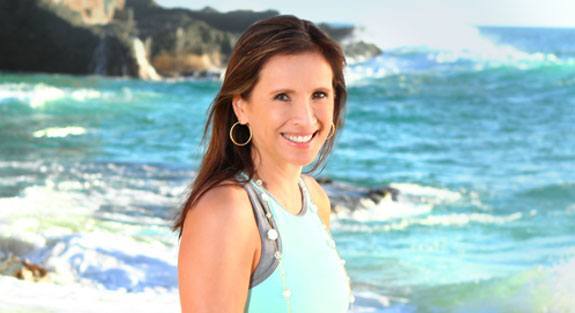Anticipating your anesthesia experience can be stressful and anxiety-provoking. The focus of our Newport Beach surgical team is your comfort and safety. Female plastic surgeon Dr. Lavinia K. Chong works alongside a roster of certified anesthesiologists to provide you the highest quality of care and safety in our private Newport Beach Surgical Suite. She has spent time building long-term relationships with her anesthesiologists, ensuring that they share her unique, patient-centered approach.
Our private Newport Beach surgical suite in Orange County, California is accredited by QuadA, the American Association for Accreditation of Ambulatory Surgery Facilities. Maintaining a consistent and vigorous Quality Assurance program has ensured that all equipment, personnel, and protocols are regularly inspected, trained and formatted to the highest standard of excellence. As a member of Hoag Memorial Hospital’s Medical Staff since 1996, Dr. Lavinia K. Chong also enjoys operating privileges at Hoag’s Main OR and Hoag Breast Center in Newport Beach and Irvine.
Traditionally, general anesthesia has been used for most cosmetic procedures, but this deep level of anesthesia is often not medically necessary. The dosing techniques often utilized with general anesthesia typically manifests itself post-operatively as excessive grogginess (the “anesthesia hangover”) and nausea and vomiting. This is where Dr. Chong and her team of anesthesiologists have found Monitored Anesthesia Care (MAC) to be more appropriate, and patient-friendly for those seeking cosmetic surgery.
Monitored Anesthesia Care (MAC) is the anesthetic technique used most often in our private Newport Beach surgical suite. This type of care ensures all vital signs (blood pressure, pulse, Oxygen saturation and End Tidal CO2 monitoring) are carefully followed by a Certified Anesthesiologist. Ultimately, the success of this deep sedation is based on cooperation, communication and vigilance between the surgical and anesthesia providers.
Advantages of using Monitored Anesthesia Care (MAC):
- Unlikely to experience “Intra-Op” awareness (waking up, during the procedure)
- Rapid emergence from anesthesia, once the case is over
- Minimal risk of Post-Op nausea and vomiting.
Monitored Anesthesia Care (MAC) tailors the anesthesia experience to each individual patient, and prevents an individual from receiving too much or too little anesthesia. With the use of intravenous (IV) medications female plastic surgeon Dr. Lavinia K. Chong and her anesthesiologists are able to create a pleasant, comfortable sleep state, without provoking nausea. This relatively novel anesthesia technique is not easy, and certainly requires more work than the traditional “one size fits all” approach with general anesthesia. But the results are worth it – our patients usually wake up from surgery with minimal grogginess, no nausea, and minimal discomfort.
ANESTHESIA FAQS
1. Will I wake up? Will I be sick when I wake up?
Yes, you will wake up from your anesthetic and because of our special technique, most patients wake up within minutes and pleasantly surprised that their “wonderful” nap is over.
Again, because we utilize a special anesthesia technique in Dr. Chong’s Orange County practice, we have eliminated post-operative nausea in 99% of our patients!
2. General vs. MAC?
General anesthesia is the “heaviest” form of anesthesia, and typically involves stronger drugs, muscle paralysis, anesthesia gases and a breathing tube. While general anesthesia is very safe, it typically produces excessive grogginess and nausea when patients wake up after their procedure. MAC is Monitored Anesthesia Care, or in layman’s terms, “twilight sleep” anesthesia under the control and direction of an anesthesia provider. This is a lighter form of anesthesia, using more rapidly metabolized sedatives and patients are breathing on their own without a breathing tube or inhaling any nauseagenic anesthesia gases. In Dr. Chong’s practice, we use MAC for most of our plastic surgery procedures because it provides our patients with a pleasant sleep experience without the heaviness or nausea of general anesthesia.
3. Do I breathe on my own?
Yes, you will always be breathing on your own during the surgical procedure. Again, we do not insert any breathing tubes into your windpipe during our cases. You will only be breathing air and oxygen. You will NOT be breathing in any nausea-provoking anesthesia gases. Your breathing is monitored constantly and continuously by your anesthesia provider.
4. Will I be talking, responsive?
The majority of our procedures utilize monitored anesthesia care (MAC Sedation), whereby patients are comfortably asleep during their procedure. For more minor procedures, minimal sedation utilizing a local anesthetic or light IV sedation may be chosen and during those cases, you may be awake but in a most relaxed state.
5. Who provides the anesthesia?
Dr. Lavinia Chong has personally selected and cultivated relationships with a select group of anesthesia providers to work alongside her in her private Newport Beach surgical suite.
6. Do you have an emergency plan if anything goes wrong?
Yes, we have all the emergency drugs and equipment for any possible emergency including a defibrillator. We regularly conduct emergency drills to make sure we are ready for any situation that may arise.
7. What are the main drugs you use?
We primarily use the sedative propofol. Propofol is the most popular anesthetic used universally in operating rooms all across the world. It is popular because it produces a rapid, pleasant sleep state but at the same time, it is rapidly metabolized so that patients wake up quickly without nausea.
8. Who is present in the OR?
Dr. Chong, a surgical technician, a registered nurse, and your anesthesia provider. Occasionally, a representative from an equipment manufacturer may also be present to provide technical assistance with specialized equipment. On occasion, a medical student may be present, but only to observe. You will always be asked prior to your procedure if you consent to the presence of observers, and have the option to decline.
9. How do you ensure I am fit for anesthesia?
Both Dr. Chong and your anesthesia provider will review your complete history and physical to ensure your fitness for anesthesia. When indicated, we will also order blood labs, EKG, and further consultation with your primary physician to make sure you are completely ready for your surgical procedure.
10. How long will it take for me to wake up?
Because we use the rapidly metabolized drug Propofol, most patients will wake up within several minutes after the surgical procedure is completed. Again, most patients will wake up from a very pleasant sleep state and without nausea.


